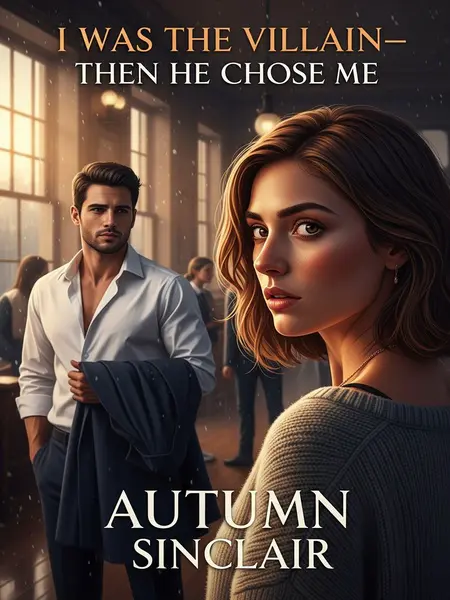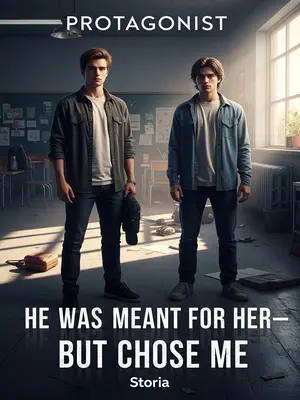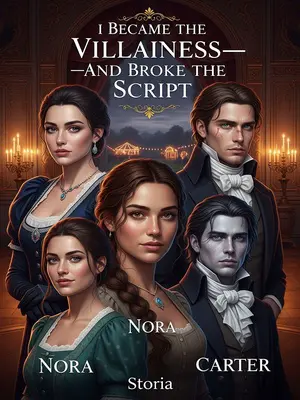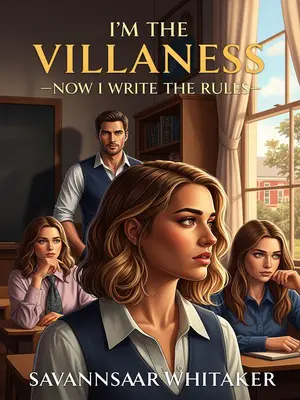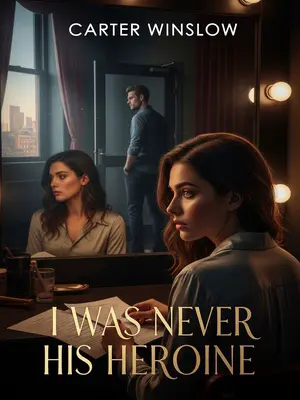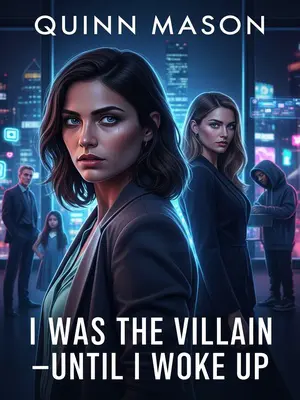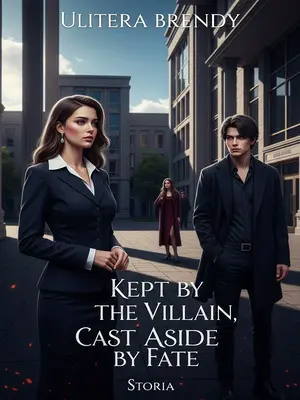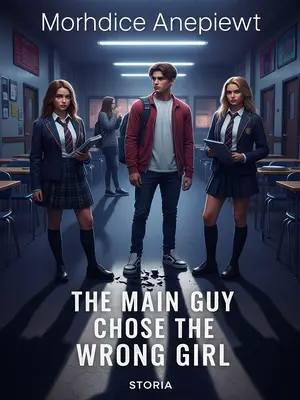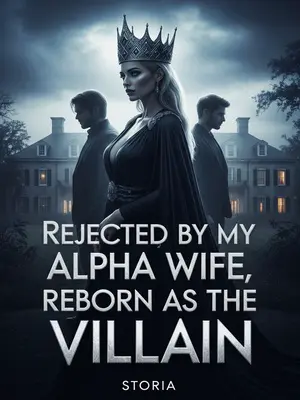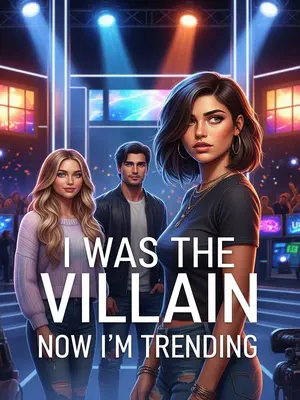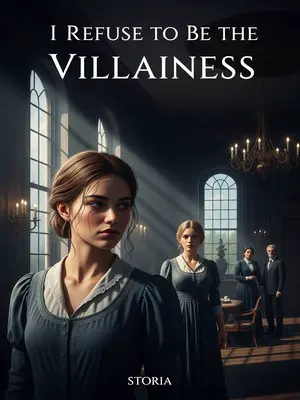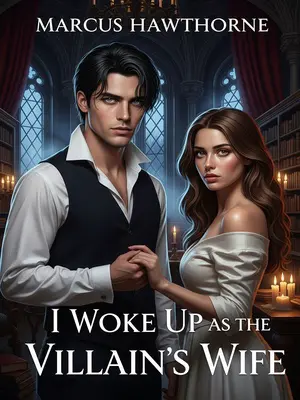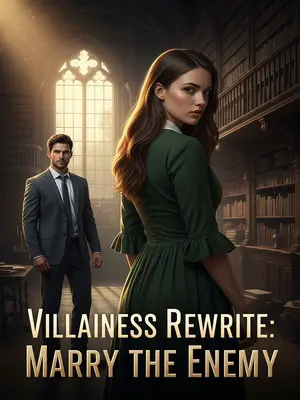Chapter 1: Living in Someone Else’s Story
Seven years ago, I woke up in someone else’s life—a supporting character in a story that wasn’t mine. Now, I think I might have fallen for the hero.
Seven years. Sometimes it feels like it happened just yesterday; other times, it’s like a whole lifetime ago. I still remember the first time I caught myself watching Julian Carter, feeling that fluttery, hopeless thing in my chest—like I was standing on the edge of a roof, looking down, heart pounding. It’s funny how you can fall for someone even when you know the script isn’t written for you. Still, here I am, tangled up in someone else’s story, hoping for a plot twist that never comes.
I’ve stood by him for seven years, giving him everything I had, but it all crumbled every time I saw the way he looked at her, the leading lady.
It’s a look you can’t fake, can’t force. The kind of gaze that makes the whole room fade away, like a spotlight shining down. I swear, you can spot it a mile away. Didn’t matter how many times I told myself to get over it. Every time he smiled at Lena Morales, it was like getting hit with a blast of cold air, right in the chest. But I kept smiling, kept playing my part, because that’s what supporting characters do, right?
Still, I keep moving forward, grinding down the heartbreak to dust, chin up, acting like I’m the most carefree girl in Maple Heights.
People around town say I’m unbothered, always laughing, first to crack a joke or hop on a hayride. They don’t have a clue. You get good at hiding heartbreak. Like your favorite old jacket—you wear it, sure, but you never really take it off. Even so, I refused to let anyone see me stumble. I made sure of it. In Maple Heights, reputation is everything, and I wasn’t about to let mine get tangled up in a sad story.
I was only eight when I landed here, with no memory of before. It was the worst of times—civil unrest everywhere, drifting among strangers, barely scraping by on stale bread and wild greens.
Eight years old, alone, and the world was coming apart at the seams. I remember the taste of stale rye, the bitterness of wild dandelion greens I picked by the railroad tracks. Nights spent curled up in barns or under bridges, listening to the distant crack of gunfire. Faces blurred by hunger and fear. I was just a kid. Even now, the smell of wet earth after rain brings it all back—how small I felt, how desperate.
Once, I even stumbled into a bandit raid. That day was all screams and terror, sunset stained red like blood, leaving me cold and shaking.
I’ll never forget that night. The sky was a bruised purple, the sun bleeding out over the hills. The air smelled of smoke and panic. I ran until my lungs burned, tripping over tree roots, heart hammering in my ears. For a moment, I thought it was over—that I’d never see another sunrise. I can still hear the shouts, the clatter of boots, and the way the world seemed to stop as I crouched behind a broken fence, praying to a God I barely remembered.
Finally, I saw the cavalry—badges gleaming, dust rising as they thundered in.
It was like something out of an old Western: horses kicking up a storm, sunlight glinting off silver badges, the sound of hooves shaking the ground. For a split second, I thought I was dreaming. I’d never been so grateful for the sight of lawmen in my life. They rode in like a promise—like hope itself.
He rode in from afar, swinging down off his horse to reach for me. His eyes were like melting mountain snow—cold, but starting to warm.
He looked at me—not through me, not past me, but right at me. I remember the way his coat flared as he swung down, the dust on his boots, the way he knelt in the dirt and offered his hand. There was something in his eyes—sharp, clear, but warm too. Like he could see the whole world and still choose kindness.
In that moment, I almost believed—
For just a heartbeat, I let myself imagine he was my hero, that maybe, just maybe, someone had come for me after all. It was the first time in this world I felt seen, not just another lost child in the chaos. I wanted to believe in miracles again.
He was coming just for me.
The night I spent at the army camp, I finally had my first full meal since I arrived: a real dinner, plenty of water, and the first good night's sleep in forever. When I woke up, memories of this body's past started to come back.
I ate until my stomach ached—real stew, thick bread, cold well water. I slept in a cot with a scratchy blanket, but it felt like heaven. When I woke, the dawn was soft and golden, and I remembered things I hadn’t known before: the sound of my mother’s voice, the weight of my father’s hand on my shoulder, the shape of my old house in the morning light. It was like finding old letters in a forgotten drawer—pieces of a life I’d never lived, but suddenly missed all the same.
My name? Autumn Sinclair. Dad was a self-made man. Followed General Carter for years, worked his way up from nothing. Mom came from the old-money Bellamy family in Savannah, but she died last year.
Autumn Sinclair. The name fit me like a favorite sweater, a little worn but still warm. My dad—Elias Sinclair—was a legend in his own right, a man who built his name from nothing, loyal to General Carter through thick and thin. Mom, with her Bellamy grace and Savannah drawl, died too soon, leaving a hole I never quite filled. I could still hear her singing old folk songs in the kitchen, the echo of her laughter in the halls.
Because of the rebellion, Dad had to go back to the front, so he sent someone to take me down to my uncle’s place in Savannah.
He pressed a letter into my hand, told me to be brave, to mind my manners, and to trust Uncle Henry. I promised I would. The carriage ride south was bumpy and long, the world outside nothing but pine trees and the occasional fox darting across the road. I tried not to cry. I tried to be brave, just like he asked.
But things went sideways.
Disaster after disaster—roadblocks, rumors of raids, strangers who weren’t what they seemed. The world spun out of control, and I found myself alone, again, running with the refugees, clutching my few possessions like they were gold. Every day was a gamble, every night a test of faith.
After a string of disasters, I ended up fleeing with the rest of the refugees.
I learned to keep my head down, to blend in, to move fast when trouble came. I picked up the accent, the slang, the tricks for finding food. Sometimes, I wondered if I’d ever see a safe place again. Sometimes, I just hoped to make it through another day.
Julian Carter.
That name hits me every time. The first time I heard it, it sounded like the answer to a question I hadn’t asked yet. Even now, just thinking it makes my heart skip a beat—Julian Carter.
I'd seen him before, more than once.
He was the kind of boy everyone noticed—tall, dark-haired, eyes like storm clouds about to break. Even now, I can picture him. Even as a kid, he had a presence. The sort of person you remember long after the crowd has faded. He’d show up at parades, at church picnics, at the Fourth of July fair, always surrounded by laughter and light.
Back then, he was all fire and charisma, one of the capital's golden boys—free and wild.
He’d race horses down Main Street, charm the old ladies at the general store, and make the younger girls blush. There was a recklessness to him, a wild edge that made you want to follow just to see where he’d lead. He was the kind of boy who believed he could outrun the world—and for a while, maybe he could.
But when I saw him yesterday? Cold as the moon.
The years had changed him. He moved with a soldier’s caution, eyes scanning every shadow. The easy laughter was gone, replaced by something harder, sharper. He wore responsibility like armor, and it made him look older than his years.
Something had changed.
I could feel it in the way he spoke, the careful way he measured every word. The world had taken something from him, and I didn’t know if he’d ever get it back. I wanted to reach out, to ask, but the words stuck in my throat.
Later, I learned that at the Battle of Willow Creek, nearly half the Carter family was wiped out. My father and Julian's group were ambushed. He barely escaped, regrouped with the surviving Carters, then teamed up with General Brooks to turn the tide, catch the traitor, and return to the capital.
The whole town buzzed with the story—how Julian rode through hell and back, how he pulled together what was left of his family, how he never stopped fighting. They called him a hero. I saw the cost in his eyes.
I just remember him bowing to me, solemn, his voice steady as a promise.
He stood tall, back straight, the kind of posture you learn from years of standing at attention. His words were careful, but there was a warmth beneath them—a promise made not just out of duty, but out of something deeper. I held onto that moment, tucked it away for the nights when the world felt too big and I felt too small.
“Your dad’s last wish was to make sure you were safe. From now on, I’ll protect you.”
He didn’t say it like a command, but like a vow. The kind you don’t break. I wanted to believe him, more than I’d wanted anything in a long time.
When we got back to Maple Heights, after Julian stood up to the young mayor and city council about the traitor, all he got was a new title for himself—County Commissioner. And for me? A ceremonial “county princess” title. Supposedly to honor the general’s orphan, but really just for show.
They made a big deal out of it—a parade, speeches, a shiny certificate. The old guard clapped and smiled, but I could see the calculation in their eyes. The title was a pretty ribbon on an empty box. No land, no money, just a name to keep me in line. Still, it gave me a place, a reason to stay, and sometimes that’s enough.
I was just an afterthought, given a title with no property or power, but at least it was official—good enough.
I learned to play the part—smiling, waving, letting the town ladies fuss over my dress at every event. People love a good story, and mine was just tragic enough to keep them interested, but not enough to make them care.
Julian’s mom, the respected Lady Carter, who was also the mayor’s aunt, had always been frail. After hearing the news, she fell seriously ill and didn’t make it through the winter.
The house grew quieter, the halls colder. I watched Julian move through his grief with a kind of grim determination, taking care of everything, never letting anyone see him falter. I tried to help, but some losses can’t be shared.
My days since then were comfortable enough. In the big old house, it was just the two of us, free as could be—sometimes drinking tea, tending the garden, or going to the county fair—living free.
We made our own little world—tea on the porch, tending roses, trading stories by the fire. Sometimes we’d sneak out to the county fair, eat too much cotton candy, and ride the Ferris wheel until we were dizzy. For a while, I thought we could stay like that forever, just the two of us against the world.
I thought it’d always be that way.
Life has a way of shifting under your feet just when you start to feel steady. I let myself believe in the comfort, in the routine, in the easy laughter that filled the house. But nothing stays the same for long—not in Maple Heights.
